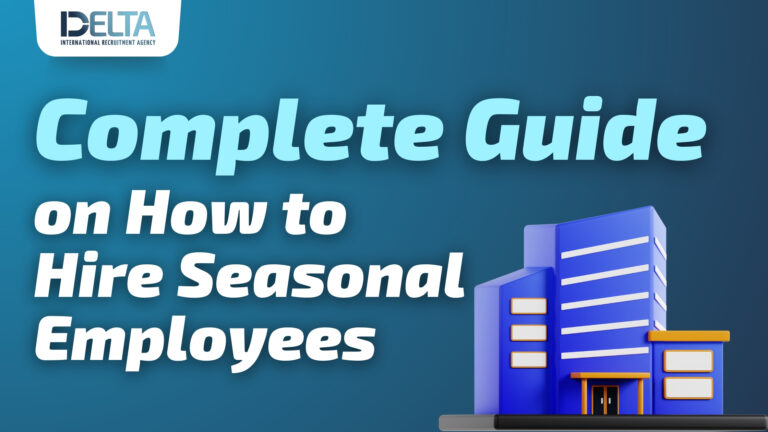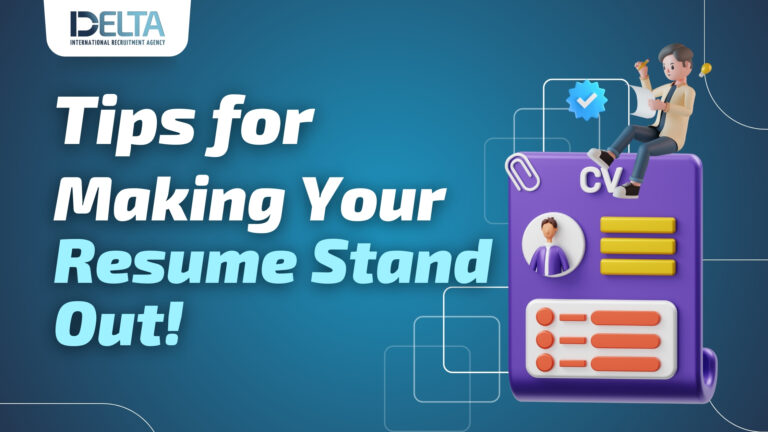Why Hire Seasonal Employees?
Benefits of Hiring Seasonal Employees
Hiring seasonal employees offers numerous benefits for businesses, especially during peak seasons. One of the key advantages is the ability to easily manage fluctuating demands without hiring a large full-time workforce. By relying on seasonal help when business is at a peak, companies can avoid the costly overhead expenses that would be required to maintain additional full-time staffing throughout the year while still meeting business needs and sales goals. Additionally, hiring seasonal workers can provide an opportunity to give potential full-time hires a “trial run” by taking them on in a less permanent capacity to start.
When to Hire Seasonal Employees
Seasonal employees are typically hired during the peak season to handle the extra workload. This type of employment is commonly used by businesses with sales and marketing domains, as employees are often paid based on the sales they make or the revenue they generate.
Hiring seasonal employees allows businesses to easily manage fluctuating demands without hiring a large full-time workforce. It is particularly beneficial for small firms and startups that may not be able to afford long-term employees.
Offering benefits like performance-based bonuses, gift cards, or other incentives along with flexible scheduling can help attract reliable seasonal talent. Additionally, keep an eye out for top-performing seasonal helpers who may have the potential to transition into permanent employees with your company. Seasonal work provides an opportunity for both employers and employees to test the waters before committing to a long-term arrangement.
Challenges of Hiring Seasonal Employees
While seasonal workers can be extremely beneficial for your business, they can be challenging to manage. They face the same issues that regular staff can – scheduling conflicts, inadequate training, and less experience, among other things – but those issues are compounded by the shorter duration of their employment and, relatedly, the more limited interaction they have with a business and its staff. Business owners looking to hire on seasonal help should be aware of this and prepared to jump over a few extra hurdles if necessary.
Here are some tips to overcome these challenges:
- Plan for Demand Ahead of Time: Seasonal hiring can be an involved process – between drafting job postings, listing job ads on various hiring websites and temp agencies, conducting interviews, and handling new hire paperwork, there can be a lot to manage. Look ahead and plan for your peak times; know when you’ll need extra help and take steps to ensure you’re fully staffed.
- Streamline Hiring Practices:During the busy season, you don’t want to be caught up in a bunch of new hire paperwork or processing documentation. Streamline your hiring practices for seasonal employees to get them onboard quickly and efficiently
- Offer Incentives and Rewards:To motivate seasonal employees and keep them engaged, consider offering benefits like performance-based bonuses, gift cards, or other incentives along with flexible scheduling.
- Don’t Assume That All Your Seasonal Talent is Temporary: Keep an eye out during the busy season; if one of your seasonal helpers seems like a good fit for your company, there may be potential for them to transition into a permanent employee.
Remember, hiring, training, and managing seasonal staff can have its own difficulties, but with proper planning and strategies, you can make your seasonal staff more of a help than a hindrance and take full advantage of the benefits they can provide your team!
Finding Seasonal Employees
Image Source:Aihr
Advertising Job Openings
When it comes to finding seasonal employees, one of the first steps is advertising job openings. This is your opportunity to attract potential candidates and let them know about the exciting opportunities available. Highlighting the unique aspects of the seasonal positions can help grab attention and generate interest. Consider using catchy language and emphasizing the benefits of working during the holiday season, such as flexible schedules, competitive pay, and a fun work environment.
To effectively advertise job openings, you can utilize various channels. Online job platforms like Indeed and LinkedIn are great options to reach a wide audience. Additionally, consider partnering with local schools and colleges to tap into a pool of eager students looking for seasonal work. By casting a wide net and targeting specific demographics, you increase your chances of finding the right seasonal employees for your business.
Using Online Job Platforms
In the modern era, the role of technology in recruitment cannot be overstated. Regardless of the season, having a robust online presence, utilizing social media, and engaging with professional networks can help businesses reach a wider audience and attract qualified candidates. Leveraging technology not only enhances the efficiency of the hiring process but also enables organizations to connect with potential hires on a global scale.
Here are some tips for using online job platforms:
- Post on major online job boards to access a broad applicant pool for temporary roles.
- Specify the temporary nature of postings to attract the right candidates.
- Check freelance sites for extensive networks of independent contractors who can provide project-based temporary labor, especially for specialized skills.
- Attend industry events, job fairs, conferences, and association events to network and meet potential temporary workers in person.
- Promote job openings on company social media pages and engage with professional networks.
Remember, having a strong online presence and utilizing technology can greatly enhance your recruitment efforts and help you find the best seasonal employees.
Partnering with Local Schools and Colleges
Networking and Industry Events
Certain seasons may coincide with industry-specific events, conferences, or networking opportunities. Participating in these events can provide companies with the chance to connect with potential candidates, learn about emerging trends, and showcase their employer brand. Aligning hiring efforts with relevant industry events ensures that recruitment initiatives are in sync with broader professional networking opportunities.
Technology and Digital Platforms
In the modern era, the role of technology in recruitment cannot be overstated. Regardless of the season, having a robust online presence, utilizing social media, and engaging with professional networks can help businesses reach a wider audience and attract qualified candidates.
Screening and Interviewing Seasonal Employees
Reviewing Resumes and Applications
When reviewing resumes and applications, it’s important to keep a few things in mind:
- Look for keywords that match the job requirements.Highlight relevant skills and experiences.
- Pay attention to any gaps in employment or frequent job changes. Ask about them during the interview.
- Consider using an applicant tracking system (ATS) to streamline the review process.
Tip: Don’t just rely on resumes and applications. Reach out to references and gather personal recommendation letters for a more comprehensive evaluation.
Remember, the goal is to find the best candidates who will thrive in your seasonal positions!
Conducting Phone Interviews
A phone interview is a brief preliminary screening that takes about 15 to 30 minutes. Keep phone screens as uniform as possible. Ask a few basic “get to know you” questions, as well as inquiries about their skills and experience and their interest in the company and position. This interview should give you a sense of who the person is and what soft skills they possess.
When conducting phone screenings, look out for red flags such as negativity, unpreparedness, lack of curiosity or poor cultural fit.
Conduct final-round interviews. Your phone interviews should narrow down your pool of candidates. Conduct in-person interviews with the candidates remaining (or video conferencing interviews, if recruiting remotely). These interviews are more in-depth, helping you select your top candidates. Have multiple people partake in these interviews to get a broader picture of how well each candidate will fit within the organization and role.
Have the job applicant perform applicable assessments. Depending on the specific job requirements, you may want to have the candidates complete assessments or tests to evaluate their skills and abilities.
In-person Interviews
Once you have narrowed down your pool of candidates through phone interviews, it’s time to conduct in-person interviews. These interviews are more in-depth and allow you to get a better sense of each candidate’s qualifications and fit for the role. It’s recommended to have multiple people participate in these interviews to gain different perspectives. During the in-person interviews, you can ask more detailed questions about the candidate’s experience, skills, and interest in the company. This will help you select your top candidates for the next stage of the hiring process.
Training and Onboarding Seasonal Employees
Orientation and Company Policies
During the orientation process, new seasonal employees will be introduced to the company’s policies and procedures. This is an important step to ensure that everyone is on the same page and understands what is expected of them. Attention to detail is crucial when going over the policies, as even small mistakes can have a big impact. It’s also a good idea to provide new employees with a handbook that outlines all the policies in a clear and concise manner. This way, they can refer back to it whenever they have questions or need clarification.
In addition to the policies, it’s important to discuss any specific rules that apply to seasonal employees. For example, if there are certain dress code requirements or restrictions on cell phone use, make sure to communicate these clearly. Open communication is key during this process, so encourage new employees to ask questions and seek clarification if needed.
To make the orientation process more engaging, consider incorporating interactive activities or role-playing scenarios that demonstrate how the policies are applied in real-life situations. This can help new employees better understand and remember the information.
Lastly, emphasize the importance of adhering to company policies throughout the entire duration of their employment. Remind them that these policies are in place to ensure a safe and productive work environment for everyone.
Job-specific Training
Job-specific training is a crucial part of preparing seasonal employees for their roles. It focuses on equipping them with the skills and knowledge needed to perform specific tasks or responsibilities. During job-specific training, employees learn about the company’s products or services, familiarize themselves with the tools and equipment they will be using, and understand the processes and procedures they need to follow. This training ensures that seasonal employees are well-prepared and confident in their ability to contribute to the work in the training program.
Mentoring and Shadowing
Mentoring and shadowing are valuable strategies for onboarding seasonal employees. Mentoring involves pairing new employees with experienced team members who can provide guidance and support. This allows seasonal employees to learn from the expertise of others and quickly get up to speed with their job responsibilities.
Shadowing, on the other hand, involves observing and learning from experienced employees as they perform their tasks. This hands-on approach helps seasonal employees gain practical knowledge and develop the necessary skills for their role.
To ensure a successful mentoring and shadowing program, consider the following:
- Pairing: Match each seasonal employee with a mentor or shadow who has relevant experience and can provide valuable insights.
- Clear Expectations:Clearly communicate the goals and expectations of the mentoring and shadowing program to both mentors and seasonal employees.
- Regular Check-ins:Schedule regular check-ins to assess progress, address any concerns, and provide feedback.
Remember, mentoring and shadowing can greatly contribute to the success of seasonal employees and enhance their overall experience with your organization.
Managing Seasonal Employees
Image Source: cpapracticeadvisor.com
Setting Clear Expectations
When managing seasonal employees, it’s crucial to set clear expectations from the start. Clearly communicate the job responsibilities, work schedule, and any specific requirements. This helps ensure that everyone is on the same page and reduces confusion or misunderstandings. Consistency is key when it comes to setting expectations.
Make sure to provide regular updatesand address any questions or concerns that may arise. By setting clear expectations, you can create a positive work environment and set your seasonal employees up for success.
Providing Feedback and Recognition
Feedback and recognition are essential for motivating and engaging seasonal employees. Feedback provides valuable insights on their performance and helps them improve. It’s important to be specific and timely with feedback, highlighting their strengths and areas for improvement.
Recognition is equally important, as it shows appreciation for their hard work and boosts morale. Consider implementing a recognition program where outstanding seasonal employees are acknowledged and rewarded for their contributions.
Here are some tips for providing effective feedback and recognition:
- Schedule regular check-ins to discuss performance and provide feedback.
- Be constructive and focus on actionable steps for improvement.
- Recognize and celebrate achievements publicly to boost employee morale.
- Provide opportunities for growth and development to show your investment in their success.
Remember, a little feedback and recognition can go a long way in keeping seasonal employees motivated and engaged!
Handling Performance Issues
When it comes to handling performance issues with seasonal employees, it’s important to address them promptly and effectively. Here are a few tips to help you navigate this situation:
- Provide clear feedback: Communicate openly and honestly with the employee about their performance, highlighting both areas of improvement and areas where they excel.
- Offer support and guidance: Provide resources and training to help the employee improve their performance. Offer guidance and support to help them succeed.
- Set realistic expectations: Clearly define performance expectations and goals from the beginning. Make sure the employee understands what is expected of them.
- Document performance issues: Keep a record of any performance issues and discussions. This documentation can be helpful if further action needs to be taken.
Remember, addressing performance issues in a timely and constructive manner can help improve the overall productivity and success of your seasonal team.
Retaining Seasonal Employees
Image Source: patriotsoftware.com
Creating a Positive Work Environment
Creating a positive work environment is crucial for attracting and retaining top talent.Employee satisfaction is directly linked to productivity and overall job performance. Here are some tips to foster a positive work environment:
- Encourage open communication and collaboration among team members
- Recognize and appreciate employees’ hard work and achievements.
- Provide opportunities for professional growth and development.
- Foster a sense of belonging and inclusivity.
Remember, a positive work environment not only benefits your seasonal employees but also contributes to the success of your business.
Offering Incentives and Rewards
When it comes to retaining seasonal employees, offering incentives and rewards can make a big difference. While they may only be with your company for a short period, providing benefits like performance-based bonuses, gift cards, or other incentives can motivate them to work hard and stay committed.
Additionally, flexible scheduling is another attractive perk that can help retain seasonal talent. By offering these incentives and rewards, you can build a team that is dedicated and reliable, even during the busy season.
Opportunities for Growth and Development
It could be something as simple as improving on a weakness or building on a strength. It could also be learning a new skill or taking on additional responsibilities at work. On a larger level, it could be seeking a promotion or moving into a leadership role.
Whatever the goal is, make sure it includes growing professionally. The worst thing you can do is stay the same! If you’re not growing your career, you’re dying—and becoming a lot less valuable to your employer. There are always ways to upskill!
- Better Serve Your Professional Network: With current colleagues, former colleagues, and other professional acquaintances, you’ve probably built a solid professional network through the years. A strong professional network can come in handy if you lose your job or are looking to make a career change. However, you shouldn’t just rely on your network when you need something. Take the time to nurture and contribute to your network regularly.
- Take Advantage of Training and Development Opportunities: Many companies offer training and development programs to help employees enhance their skills and knowledge. Take advantage of these opportunities to learn new things and improve your professional capabilities. Additionally, seek out external training courses, workshops, or certifications that align with your career goals.
- Embrace Challenges and Seek Feedback: Growth and development often come from facing challenges and receiving feedback. Don’t shy away from difficult tasks or projects that push you out of your comfort zone. Embrace them as opportunities to learn and grow. Seek feedback from your supervisors, colleagues, and mentors to identify areas for improvement and take steps to address them.
- Set Clear Goals and Create a Development Plan: To effectively grow and develop professionally, it’s important to set clear goals and create a development plan. Define what you want to achieve and outline the steps you need to take to reach your goals. Regularly review and update your plan to ensure you’re on track and making progress.
- Stay Curious and Continuously Learn: The world is constantly evolving, and so are industries and job roles. Stay curious and embrace a mindset of continuous learning. Stay updated on industry trends, technologies, and best practices. Read books, listen to podcasts, attend webinars, and engage in other learning opportunities to expand your knowledge and stay ahead.
Tip: Building and maintaining a strong professional network is an ongoing process. Make an effort to connect with others, attend industry events, and participate in professional organizations.
Remember, growth and development are ongoing processes. It’s important to be proactive and take ownership of your professional growth. Don’t wait for opportunities to come to you—seek them out and make the most of them!
Legal Considerations for Hiring Seasonal Employees
Image Source:agendrix.com
Understanding Employment Laws
Employers must understand the classification of employment and related rules & regulations by the U.S. Department of Labor. Staying compliant with labor laws is crucial to avoid heavy penalties or lawsuits. Depriving employees of their entitled benefits can have serious consequences.
It is important to know the classification of employment and ensure that employees receive the benefits they deserve. This includes understanding the rules and regulations set by the FLSA, IRS, and DOL. By staying informed and following the guidelines, employers can protect themselves and their employees.
Complying with Wage and Hour Regulations
When hiring seasonal employees, it is crucial to comply with wage and hour regulations to avoid legal issues and penalties. Make sure you understand the rules and regulations stated by FLSA (Fair Labor Standards Act), IRS (Internal Revenue Service), and DOL (Department of Labor) associated with their employment type.
This will help you determine the benefits and policies that you must abide by. Additionally, understanding the classification of employment and related rules and regulations by the U.S. Department of Labor is essential to stay compliant and avoid litigation. By staying informed and following the guidelines, you can ensure a smooth and legally compliant employment process.
Ensuring Workplace Safety
Workplace safety is of utmost importance to protect employees and maintain a healthy work environment. Employers should take proactive measures to identify and mitigate potential hazards. This includes implementing safety protocols, providing necessary training, and regularly inspecting equipment and facilities. Key topics to focus on for workplace safety include crowd management, forklift and warehousing safety, precautions for winter weather hazards, safe driving practices, and strategies to manage emergencies.
To ensure workplace safety, employers can:
- Conduct regular safety audits and inspections
- Provide personal protective equipment (PPE) to employees
- Establish clear emergency response procedures
- Promote a culture of safety awareness and encourage reporting of hazards or near-miss incidents
Remember:Safety is everyone’s responsibility, and by prioritizing it, we can create a safer and healthier work environment for all.
Legal Considerations for Hiring Seasonal Employees
In Conclusion
Hiring seasonal employees can be a game-changer for your business, providing the extra help you need during busy periods. By planning ahead, providing clear job descriptions, and offering regular feedback, you can ensure that your seasonal staff is a valuable asset.
Don’t forget to adjust your hiring and onboarding processes to accommodate the unique needs of seasonal workers. And keep an eye out for potential permanent employees among your seasonal talent. With these tips, you’ll be well-equipped to hire and manage seasonal employees successfully!
Frequently Asked Questions
What are seasonal employees?
Seasonal employees are people who are hired for a specific period of time, usually during busy seasons, to help companies meet increased demand.
Why should I hire seasonal employees?
Hiring seasonal employees can help businesses meet increased demand during busy seasons, improve productivity, and provide flexibility in staffing.
When is the best to hire seasonal employees?
The best time to hire seasonal employees depends on the specific needs of your business and the industry you are in. It is important to plan ahead and hire in advance to ensure you are fully staffed during peak times.
How can I find seasonal employees?
You can find seasonal employees by advertising job openings, using online job platforms, and partnering with local schools and colleges.
What should I consider when screening and interviewing seasonal employees?
When screening and interviewing seasonal employees, consider reviewing resumes and applications, conducting phone interviews, and holding in-person interviews to assess their qualifications and fit for the role.
How should I train and onboard seasonal employees?
To train and onboard seasonal employees, provide orientation and company policies, job-specific training, and mentoring or shadowing opportunities to ensure they are prepared for their roles.
How can I effectively manage seasonal employees?
To effectively manage seasonal employees, set clear expectations, provide feedback and recognition, and address any performance issues promptly and professionally.
How can I retain seasonal employees?
To retain seasonal employees, create a positive work environment, offer incentives and rewards, and provide opportunities for growth and development.
Tips for Employers: Complete Guide on How to Hire Seasonal Employees




